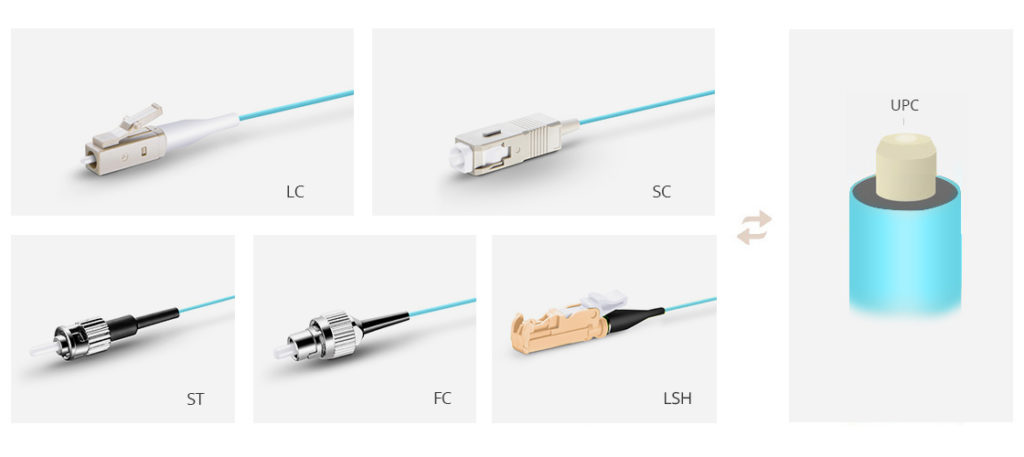Fiber optic patch cable is an important cable component for fiber optic networks, the armored fiber optic patch cables are specially designed for harsh environment in in aerospace, automotive, industrial, medical, and military applications. FiberStore provides a huge selection of armored fiber optic patch cables in any configuration, with any connectors types, cable modes, and lengths.
Armored fiber patch cable is a round, compact and very tough duplex patch cable with flexible armouring under PVC or LSZH jacket, providing exceptional crush and kinking resistance. Armored fiber patch cord is different from standard fiber optic patch cables, the very commonly used fiber optic patch cables structures is like this: fiber glass core in the center of the cable, cladding outside the fiberglass for protection, Kevlar outside the cladding, Kevlar is soft as well as very strong material, then the outside is the cable jacket. Traditional fiber optic patch cords are tender equipment, people cannot bend it too much or the fiberglass will be damaged and broken, which is not suitable for harsh environment.
Armored fiber optic patch cables are with the same types of fiber optic connectors as the commonly used types, the difference is the cable itself. Armored fiber optic cables are typically used for indoor applications, with the same outer diameter of common types 2mm or 3mm. The difference is armored fiber optic cables are with stainless steel tape just inside the cable jacket and outside the Kevlar, this stainless unit provides extra feature as well as retain all the function that a common type optical fiber patch cable can give. What’s more, armored fiber optic cords are anti-rodent, and it can be handled as electric cables. It is not easy to get damaged or cut, and it can resist an adult step on it.
Armored fiber optic patch cable ordering guide:
FiberStore supply armored fiber optic patch cables, including 10G OM4/OM3, 9/125, 62.5/125 types. 10G fiber patch cables provide 10 gigabyte data transfer speeds in high bandwidth applications and they are 5 times faster than standard 50um fiber cable. All armored fiber patch cable types can be with SC, ST, FC, LC, MU, SC/APC, ST/APC, LC/APC, etc. types of terminations.
Fiber optic connector type: LC, FC, SC, ST, MU, MTRJ, E2000
Ferrule Interface type: PC, UPC, APC
Fiber cores: Simplex, duplex, 4 fibers, 8 fibers etc.
Fiber type; single mode (G.652, G655), multimode(50/125) /(62.5/125)
100% Insertion Return Loss, End Face and Interference inspection
Low insertion loss, high return loss
Excellent mechanical endurance
Good in repeatability and exchangeability
Insertion loss: <0.5 dB
Operation temperature: -20° to 85°C
10G OM3 OM4 fiber cable available
Various jacket material, PVC and LSZH
Related: Armored LC-LC patch cord

